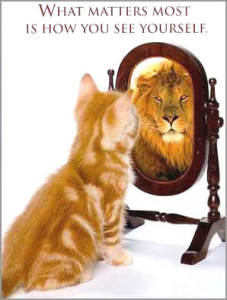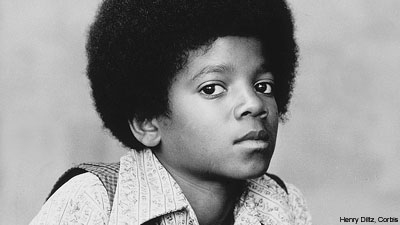podcast 381 – Mainstream Christian Theologies in the year 240: What Trinitarian Apologists Don’t Know
Can we find trinitarians in the year 240 AD?
Can we find trinitarians in the year 240 AD?
A response to a response to my paper “When and How in the History of Theology Did the Triune God Replace the Father as the Only True God?”
A new debate book with four analytic theologians on clashing views of the Trinity.
I had the privilege yesterday of being interviewed by Sam on his Transfigured podcast. The episode is below. Sam did a great job with the episode. We discuss my opening arguments, and I give some hot takes on the rival views of my co-authors. Here’s the YouTube version; you can get the audio-only version wherever you get your podcasts. It will make the most sense… Read More »Transfigured podcast interview on the debate book
 Long ago Arius said that there could be only one God because the distinctive attribute of God is to be ungenerated. In turn, Arius devised a neat syllogism. (i) God is ungenerated. (ii) The Son is generated. (iii) Therefore the Son is not God.
Long ago Arius said that there could be only one God because the distinctive attribute of God is to be ungenerated. In turn, Arius devised a neat syllogism. (i) God is ungenerated. (ii) The Son is generated. (iii) Therefore the Son is not God.
The way that the catholic Athanasius addressed this syllogism was to ask what might we mean by saying ‘ungenerated’. Perhaps we mean ‘does not come into existence’. If that is what we mean by ‘ungenerated’, then (says Athanasius) we can say that the Son is ‘ungenerated’ in just this sense. Hence, the syllogism doesn’t go through.
Read More »That Difficult Question: “Is God a self?” (Scott)
I dropped two nukes on Dale’s divine deception argument in two previous posts, which I dubbed Fat Boy and Little Man, respectively. From the ashes Dale returned desperate and feeble fire. Out of respect for my worthy friend foe, I now respond with some a fallout clean up and hereafter promise ceasefire. Dale’s Response to Little Boy In answer to my skeptical theist response to… Read More »Surrejoinder on Divine Deception
Central to Dale’s divine deception argument against Social Trinitarianism (ST) is the following analogy. Little orphan Annie is one day adopted by a man named Fred who claims to be her father. Fred lovingly raises Annie over the years, but for unknown reasons will not see her in person. But, at long last, Fred finally does meet her. Much to her surprise, however, Annie meets… Read More »Dale’s Divine Deception Dilemma
In “Divine Deception, Identity, and Social Trinitarianism” Dale argues that if Social Trinitarianism (ST) were true, the Father, Son, and Spirit would be guilty of a blameworthy act of deception. But because the Father, Son, and Spirit are ex hypothesi morally perfect, ST must be false. By offering a moral objection to ST, Dale’s argument has the lovely virtue of sidestepping the tired tri-theist objections… Read More »Farewell to Tuggy’s Divine Deception Argument
Here Richard spells out more fully than before the nature of shared love (condilectus). Here he offers one main argument (A.1-3) from supreme shared love for the Trinity and then a follow-up argument (B.1-3) again from supreme shared love for the Trinity. So (A) consider the nature of shared love:
“Shared love is properly said to exist when a third person is loved by two persons harmoniously and in community, and the affection of the two persons is fused into one affection by the flame of love for the third.” (Richard of St. Victor, On the Trinity, p.392)
(This is as close as we ever get to a characterization of shared love.)
So, in divinity, if there is shared love, there are at least three persons.Read More »Richard of St. Victor’s De Trinitate, Ch.19 (Joseph)
In my recent paper on the Trinity (discussed by Dale and I here and here) I distinguish two ways a thing can meet sufficient conditions of personhood. One way is to behave, function, or perform in such a way as to meet those conditions. So if a robot or group, for example, became morally responsible or rational in virtue of function alone, it would thereby… Read More »Yet More Theories of the Trinity
Last month my publisher gave the green light to start work on The Same God? Reference and Identity in Jewish, Christian, and Muslim Scriptures. Yes, that old question of whether Muslims worship the same God as Christians, which surfaced again last year when Larycia Hawkins, an associate professor at Wheaton College, was suspended following her Facebook post citing Pope Francis’s statement that Muslims and Christians… Read More »God and Allah
Dale writes: A self is being which is in principle capable of knowledge, intentional action, and interpersonal relationships. A god is commonly understood to be a sort of extraordinary self. In the Bible, the god Yahweh (a.k.a. “the LORD”) commands, forgives, controls history, predicts the future, occasionally appears in humanoid form, enters contracts with human beings, and sends prophets, whom he even allows to argue… Read More »Does God have a body?

Up to this point in Book 3 Richard has told us several things about love (caritas). We have wondered at his saying there isn’t a perfectly good person if he doesn’t love. We have sorted through some necessary conditions for love such that we wonder whether a perfectly good person p must love another person q if p is to be perfectly good. You might say we’ve been contemplating some divine ethics, or aesthetics, or whatever.
In the previous post I suggested how we might interpret what Richard means by saying (two) divine persons are equal and similar to one another, namely the divine persons have the same disposition of love and the same acts of love (see [T4’] and [T5’]). In the next part of Richard’s argument he returns to his metaphysics of the divine substance which he discussed in Books 1 and 2.Read More »Richard of St. Victor 7 – The Same Divine Substance (Scott)

“My god Spock! Is this the apex of human intellectual production?” “No Captain, look within, do you smell that?”
I apologize for the delay in posting. I have been busy with, among other things, my own work.
In the previous post, I enumerated 40 lines of premises and conclusions that generally summarizes Henry’s philosophical psychology of the Trinity. There are one or two things that ought to be clarified.
I have posted some responses to Dale’s post in the Comments section of his post.
I would like to elaborate on two issues in this post.
1. Why must the divine intellect be perfectly actual? (pace Dale’s 2nd objection)
2. Why must the divine intellect have two powers, an operative power and a productive power?
In regards to 1, Henry generally follows Anselm’s perfect being theology program. In this program, when we attribute some property to God we should follow the rule: ‘whatever it is simply better to have than not have we should attribute to God’. This property that it is simply better to have than not to have in medieval speak is called a ‘pure perfection’. A pure perfection is some property that it is simply better to have than not to have it. A pure perfection is some property x that is not considered as a pure perfection with regard to some species-nature. It is not a question of whether ‘it is better for my fish Nigel to be a Ninja or not’, but whether it is simply better to be a Ninja or not. A comparison to some species is not at issue here. For example, if it is better to be wise than not be wise, we should say that God is wise. If it is better to be loving than not to be loving, we should say that God is loving. If it is better to be stupid than not stupid, we should attribute ‘being stupid’ to God. But, our intuitions lead us to think that being wise and being just are simply better to have than not to have; yet being stupid is something we wouldn’t attribute to God because it is actually better to not be stupid, than to be stupid.
Read More »HoG: Intellectual Production of the Word (Scott)